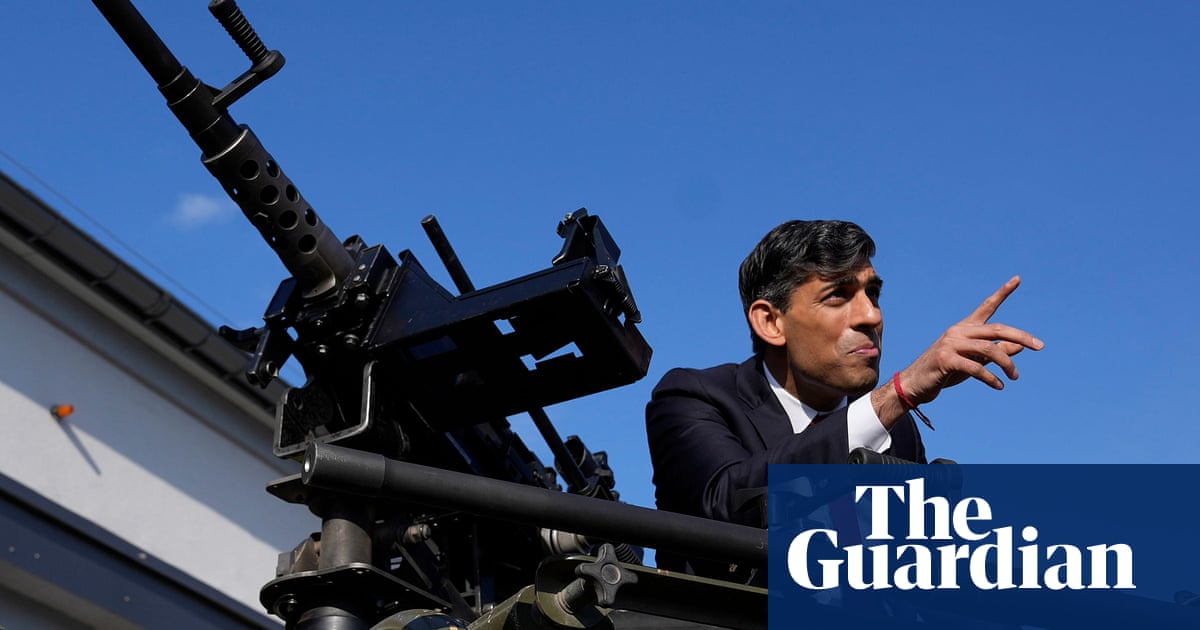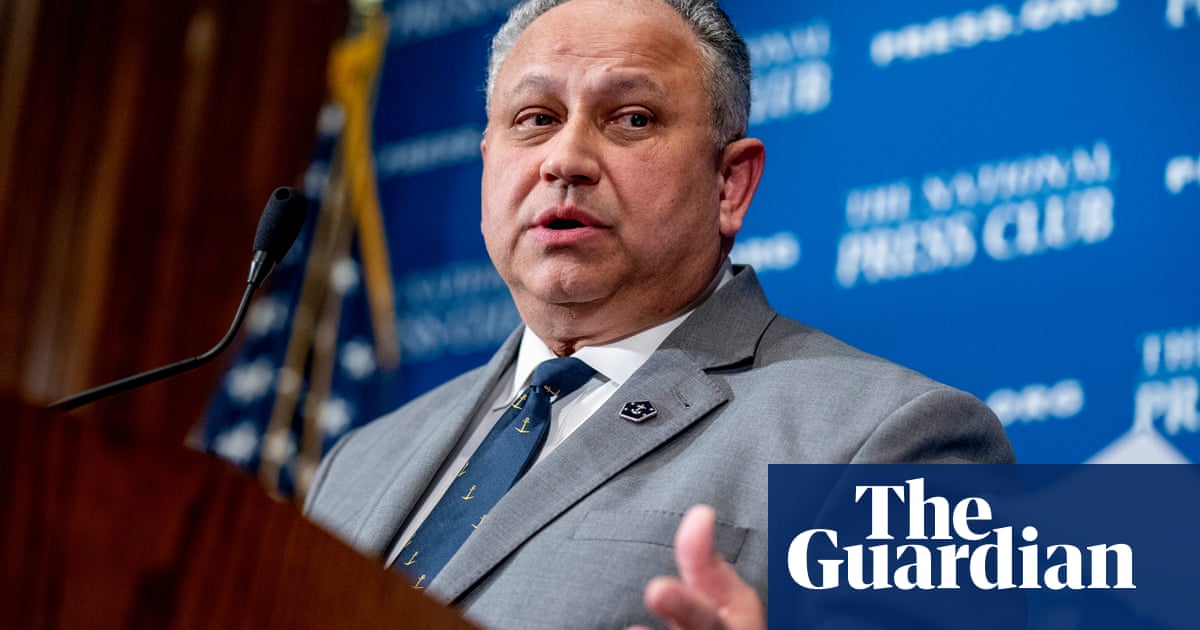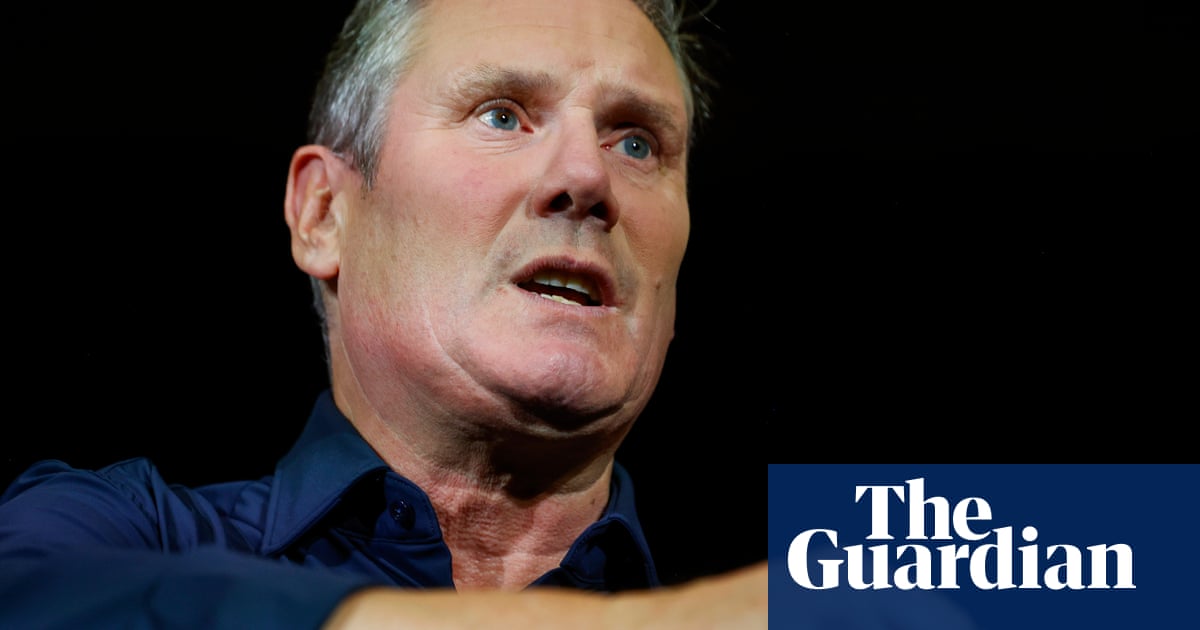
Keir Starmer is being urged to consider an emergency cash injection into defence and to accelerate Britain’s planned review of its military capabilities before Donald Trump’s return to the White House.
Senior defence figures are now assessing how Trump’s victory will shape a strategic defence review (SDR) that was already under way in Whitehall, whose findings are due to be reported in the spring. The SDR comes alongside a crucial review of public spending.
However, Starmer and chancellor Rachel Reeves are already facing calls to think again about the immediate funding allocated to defence, amid concerns that a clear plan for the military’s future may not be in place until next summer.
Starmer’s commitment to spend 2.5% of GDP on defence when economic conditions allow remains unfunded since the budget. Meanwhile, a £17bn shortfall in the budget for new weapons and equipment over the next 10 years has already been identified by the National Audit Office.
Admiral Lord West, a former chief of the naval staff who served as Labour’s security minister under Gordon Brown, told the Observer that Trump’s election created a chance to demonstrate Britain’s willingness to step up on defence, amid the incoming US president’s criticism that European nations have failed to prioritise it.
“I see it as an opportunity,” he said. “It is understandable, given the politics, to do a strategic defence review. But if you’re going to match what’s required for the security of this nation, it will inevitably mean a need for more money. So why don’t we now bite the bullet and go down that road?
“Historically, we’ve done better than most European countries and Trump knows that. We can set an example. We could show we’re going to move straight towards 3% [of GDP spent on defence] because we want to show everyone the way. This would be a big tick in the box, Trump would be on side, and there will be lots of benefits.”
West’s intervention coincides with immediate concerns for Trump’s support for Nato and Ukraine. One of the figures involved in the strategic defence review is Fiona Hill, the former White House Russia adviser who Trump once described as “a deep state stiff with a nice accent”. Last week, the prime minister reassured the Ukrainian president, Volodymyr Zelenskyy, that the UK’s support for Ukraine in its war with Russia remained “iron clad”.
Prof Malcolm Chalmers, deputy director general of the Royal United Services Institute and an ex-special adviser to former Labour foreign secretaries Jack Straw and Margaret Beckett, said there was a case for more immediate cash injections into defence.
“If you assume a reasonable growth in NHS spending after 2025-26, the chancellor has left very little money for other departments to have significant real-terms increases,” he said. “Maybe defence will be an exception to this rule, especially given the new circumstances created by Trump’s election. But we haven’t yet seen any indication of such a shift. Certainly, if we are talking about a defence budget that doesn’t reach 2.5% by the end of the decade, then the squeeze on defence capabilities will be quite significant.
“Given Trump’s election, there is an immediate case for the Treasury reopening the settlement for this year and next. The current defence allocation is below the Whitehall average increase for next year, which feels out of kilter with geopolitical reality.”
West accepted that after a tax-raising budget that boosted spending, there was little public money to spend, but said painful cuts would have to be made elsewhere. “Defence of our nation and our people is the highest priority of any government,” he said. “Therefore, there’s a need to cut things. I’m afraid that is unpleasant and horrible, but you can’t go on saying how important defence and security is and not do something about it.”
A government spokesperson said: “This government will always do what it takes to defend this country, with threats increasing, the world becoming more volatile and technology changing the nature of warfare. That is why the budget increased defence spending in real terms by £2.9bn for next year and we are committed to setting a path to 2.5% of GDP on defence. The strategic defence review is working at pace to look at the threats we face and the capabilities we need to meet the challenges, threats and opportunities of the 21st century.”












